Genfest 2018 with its theme, Beyond all Borders, is an invitation to allow barriers, borders, and all limits to crumble in order to build a united world in justice, peace and brotherhood. Genfest first began in 1973 from an idea of Chiara Lubich, founder of the Focolare Movement, and in more than 40 years it has already gathered together tens of thousands of young people. The Genfest of 2018 will be its eleventh edition, and the first one held outside Europe.
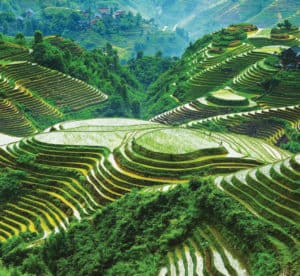
Throughout its long history, each Genfest has marked an important step forward and has seen many projects come to life: among them is the idea for holding the World Youth Day, begun in 1985; in the same year, the birth of the Youth for a United World (Y4UW) group, and the United World Week, observed since 1996, to showcase initiatives which promote unity at all levels in the world. Finally, 2012 saw the launching of the United World Project, a permanent observatory of all good practices on a planetary level.
This year’s Genfest comes before the Synod on young people, which will be held in Rome come October 2018. Ding Dalisay, Focolare co-director of the One Philippines Zone, shares with us: “To our great joy, we have received support from the president of the Catholic Bishops’ Conference of the Philippines, who encourages us to work and bring the Genfest to as many young people as possible.
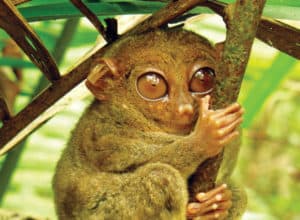
Source: Wikimedia Commons
For some time now the Gen (Focolare youth) of the Philippines have been touring in caravans to present the Genfest to parishes, universities, and other places. We have great hope that many young people will come.” Carlo Gentile, co-director of the One Philippines Zone explains: “It will be the first Genfest in Asia, so it will be a very important multicultural event. Chiara Lubich called the Genfest a “cascade of God.” We can look forward to a wonderful event that has been prepared not only for all the youth from Asia, but also for the whole world; a profound experience, steeped in Asian culture.”
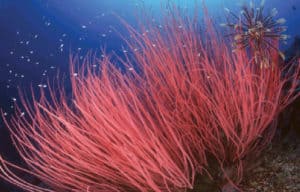
“The 2018 Genfest will take place in three phases: the first phase, before the main event in Manila, gives many youths from various parts of the world the chance to know about Asian cultures. It will be a unique intercultural, interreligious, and social experience, to take place in different Asian countries. Following this, comes the central event in Manila from July 6-8, where we want youth from every part of the world to be able to participate, so that each person’s situation will be rendered present, but at the same time each person will be able to bring back to their own community their experience and the commitment that they will take up in Manila. Finally, there will be a “post-Genfest,” especially for Asian youths, which will allow them to testify to a “United Asia for a United World.” This promises to be a great experience for 800 young people in the Focolare’s little town, Mariapolis Peace, located in Tagaytay.
A Milestone
The main Genfest event will be held from July 6-8, 2018 at the World Trade Center in Pasay City, while all related workshops will be held at De La Salle University and other nearby universities in Manila. It has as its theme “BEYOND ALL BORDERS.”
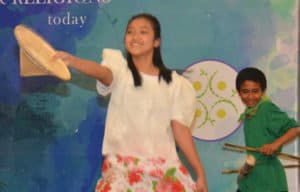 “This Genfest will be a milestone, essential in the journey towards a united world,” Maria Guaita and Marco De Salvo of the Youth for a United World’s central secretariat explain, “to share the ongoing endeavors for unity and peace, as well as to gain strength and courage from one another. Many of the youths live in territories at war, in conflict and in social distress. This is the frontline where many have chosen to start changing the world.”
“This Genfest will be a milestone, essential in the journey towards a united world,” Maria Guaita and Marco De Salvo of the Youth for a United World’s central secretariat explain, “to share the ongoing endeavors for unity and peace, as well as to gain strength and courage from one another. Many of the youths live in territories at war, in conflict and in social distress. This is the frontline where many have chosen to start changing the world.”
“We are active on various fronts: besides being in the peripheries, we are also engaged in education, sports and solidarity,” points out Rafael Tronquini, Brazilian, of the Genfest Marketing Team – who has been in Manila for several months now, “We want to be there where we see the needs and hear our people’s cries for help across the length and breadth of the world. We could summarize the Genfest logo with the motto: ‘less is more.’ We face infinite challenges and barriers, but what matters is to overcome them together and take one step forward towards unity.”
In 1987, Chiara Lubich explained further what Genfest is: “An explosion of fires, not artificial fireworks, but real fires, the fire of God’s love. The goal of ut omnes (“Father, may they all be one” [Jn 17:20-23]) draws nearer. Jesus wins over and draws people along, leaving behind everything that doesn’t move, like a stream of fresh water leaves on the sides all the things that can’t be carried away in its limpid waters.” Chiara added: “You’ll see the miracles of God’s grace, because God is with us, God is in our midst. He’s the only Powerful One.”
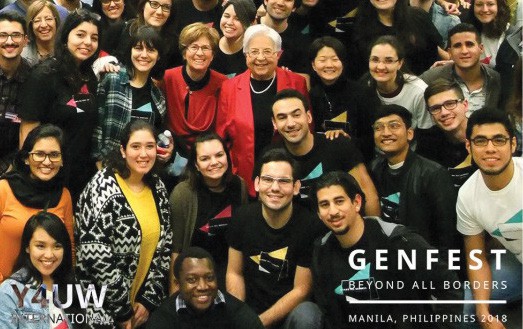
The current president of the Focolare, Maria Voce, also encourages: “I’d like to say a huge thank you to the young people.” They’ve made a great act of courage “which seems like the answer of today to the appeal Chiara launched back in 1960: ‘Young people of the world, unite!’ This appeal still resounds right now, not only for you, but also for everyone. The goal of a united world has not yet been attained. The first generation couldn’t do it alone. The second won’t do it alone either, because its purpose is so vast. The idea of a united world has to be passed on from one generation to the next, and all of them united together can then hope to bring it to fulfilment.”
Melting Pot: a cultural background and brief history
The Philippines is a nation in Southeast Asia, composed of about 7,641 islands. It’s the home of many beautiful beaches, high mountain rice terraces, and a rich and diverse cultural heritage, almost on every island. Its marine areas and terrain are very rich in minerals like gold, copper, iron, natural gas, and oil, etc… It is home to many endemic animal and plant species. In 2010, about 100 international marine biologists declared the sea waters of the Philippines, especially in Southern Luzon and in Central Philippines, as the very heart of marine bio-diversity due to the presence of about 10 thousand marine species endemic to the place.
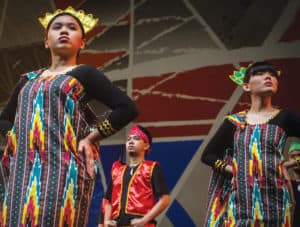 From the start, the Philippine islands have been a melting pot of cultures, especially through navigators and seafarers because these islands had afforded shelter and refuge to those caught in typhoons in the Pacific. Its location is quite strategic, politically and geographically, for the region. Visited by Indians, Muslim missionaries, Chinese merchants, the islands have been also colonized by three “empires” in history: the Spanish, American, and Japanese. These movements of colonization, trade, and missionary encounters between both Christians and Muslims, make this nation a melting pot of both Eastern and Western cultures.
From the start, the Philippine islands have been a melting pot of cultures, especially through navigators and seafarers because these islands had afforded shelter and refuge to those caught in typhoons in the Pacific. Its location is quite strategic, politically and geographically, for the region. Visited by Indians, Muslim missionaries, Chinese merchants, the islands have been also colonized by three “empires” in history: the Spanish, American, and Japanese. These movements of colonization, trade, and missionary encounters between both Christians and Muslims, make this nation a melting pot of both Eastern and Western cultures.
This blend of many cultures results in a Philippine identity which is quite unique, borrowing a lot from Western ideologies and principles but also at a certain point of history, revolting against Western colonizers. Just think of the Philippines’ national hero, Jose Rizal, whose statue one finds in every small town plaza. Educated in Western ideals, he fought for reforms which paved the way for a country independent from Spanish rule. Then there are more recent figures like Carlos P. Romulo and Claro M. Recto who used their Western formation to assert Philippine independence from the United States.
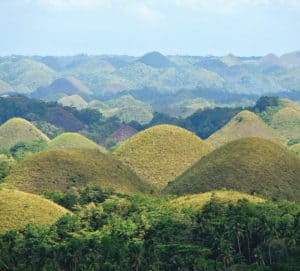
Source: Wikipedia
A great uprising in the recent history of the Philippines was the People Power Revolution of 1986. At that juncture of its history, there were no foreign rulers oppressing the Filipinos but a harsh dictatorial rule. This revolution, commonly known as the EDSA Revolution, was lauded by the whole world and imitated by some other nations, because of the peaceful and bloodless way it brought about political change.
At present, Filipinos and Filipinas, are in a continuous search of our “nationhood” just like any other country in this world. We have a great openness towards both Western and Eastern mindsets. We are also known for our sense of hospitality, generosity and the importance of family ties for we place great value on human relationships (pakikipagkapwa-tao). So with this short historical, cultural and geographical background, we welcome you to Genfest 2018 in the Philippines!




